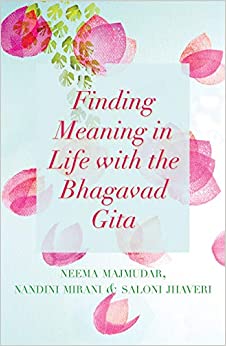FINDING MEANING IN LIFE WITH THE BHAGAVAD GITA (HB)
Neema Majmudar has a master’s degree in International Affairs from the School of International and Public Affairs (SIPA), Columbia University. She has studied the Upanishads, Bhagavad Gita, and Sanskrit with Swami Dayananda Saraswati. She worked for almost twenty years at the United Nations, before becoming a full-time teacher of Vedanta and the Gita. Neema and her husband, Surya Tahora, conduct regular workshops and retreats on Vedanta. ... Read more Read less
The Bhagavad Gita, also known as the Gita, is one of the world’s oldest and most influential spiritual texts. Part of the Mahabharata, composed by Ved Vyasa anywhere between the fifth and second centuries BCE, the 700 verses of the Gita are set in the form of a dialogue between Arjuna, one of the five Pandavas, and Lord Krishna, his charioteer, on the great battlefield of Kurukshetra. Arjuna is filled with despair about the violence and death the imminent war between the Pandavas and their cousins, the Kauravas, will cause, and is also grappling with other moral dilemmas. The Krishna–Arjuna dialogues cover a broad range of topics, touching upon ethical concerns and philosophical issues that go far beyond the eighteen-day war that is about to take place. ... Read more Read less











